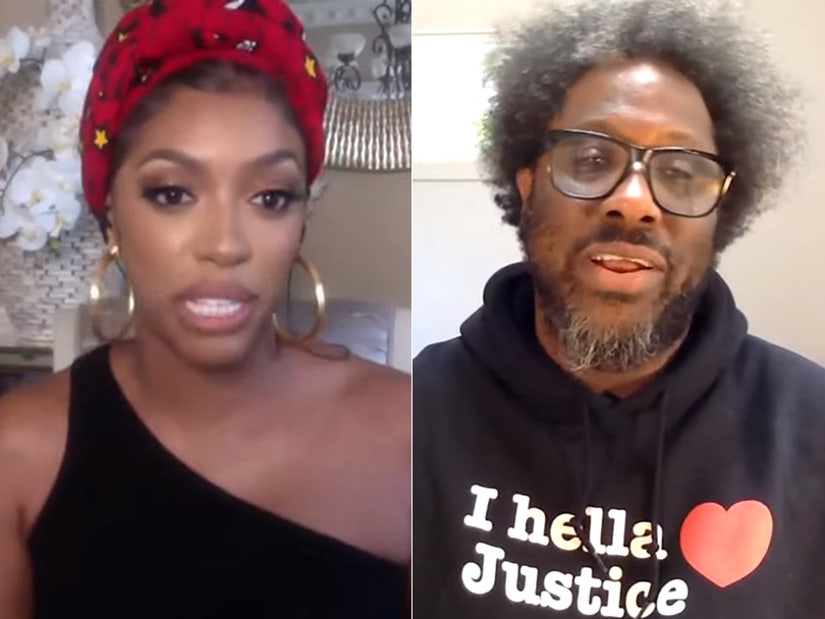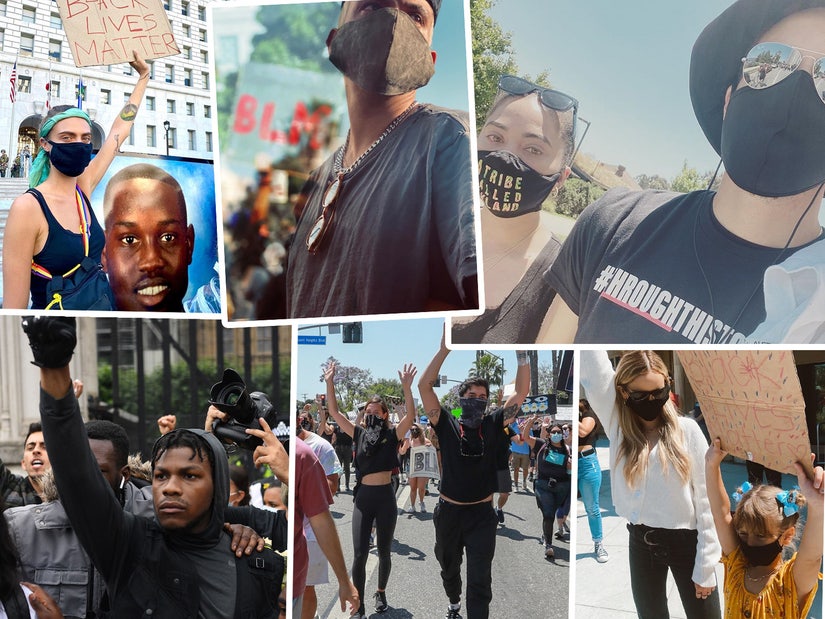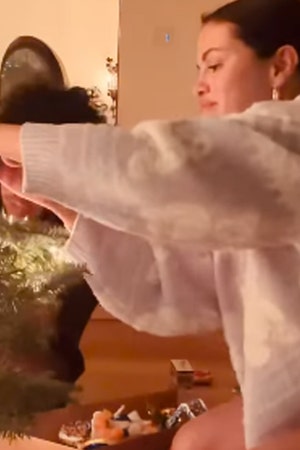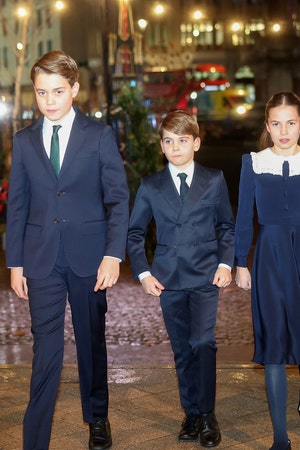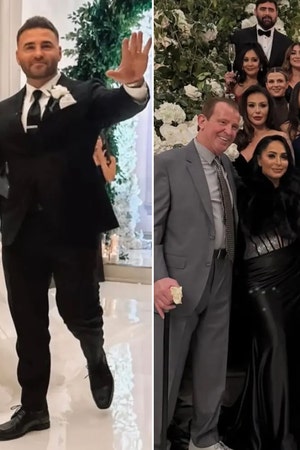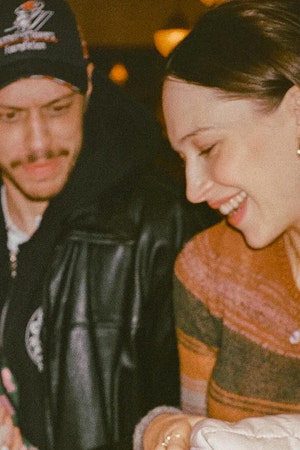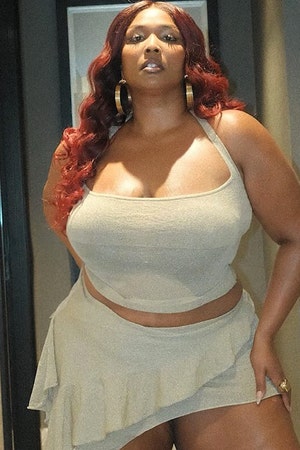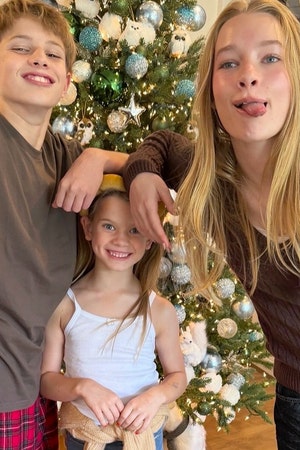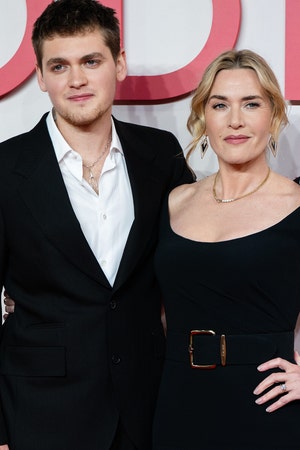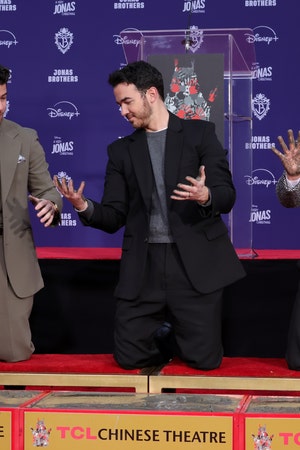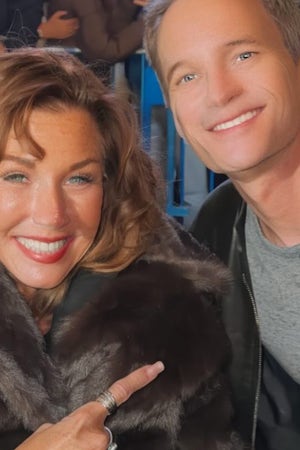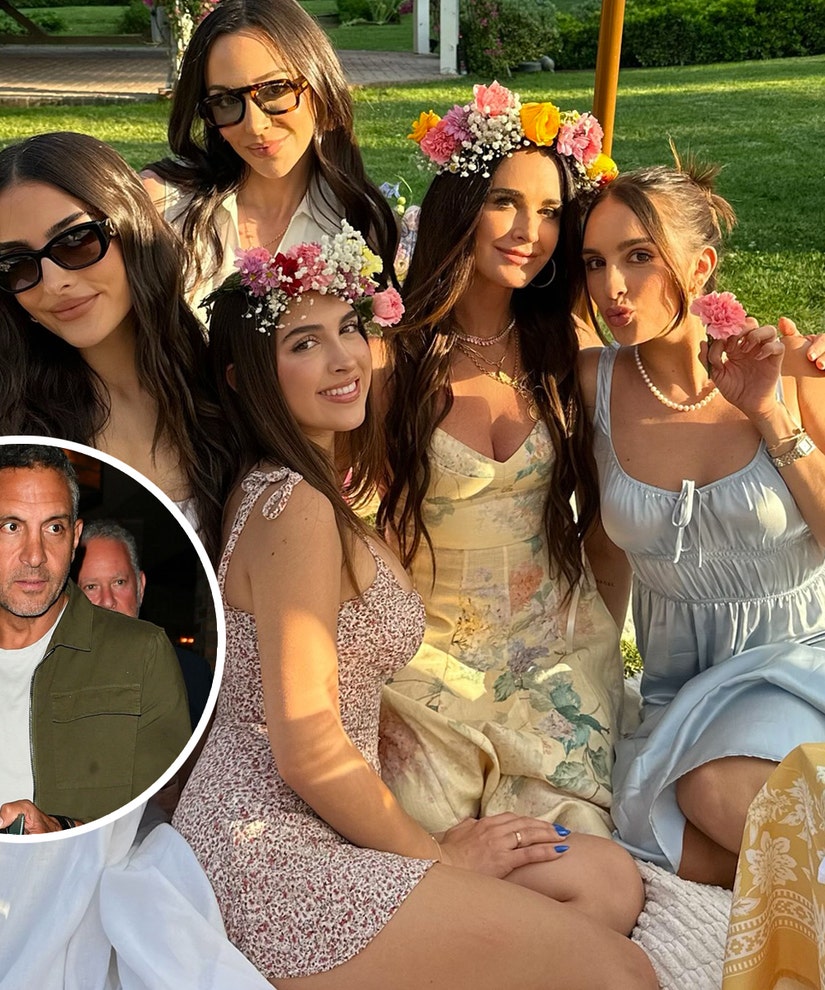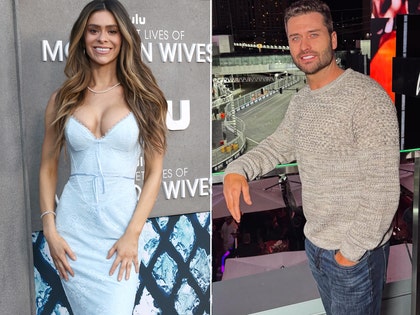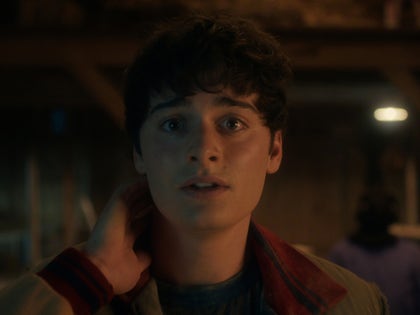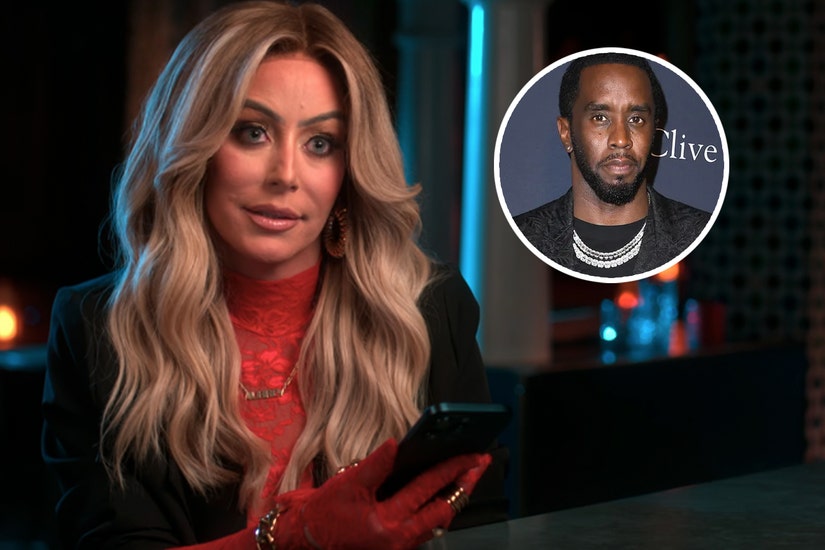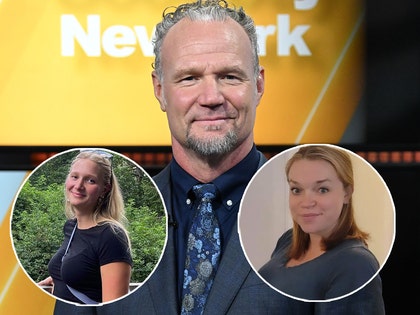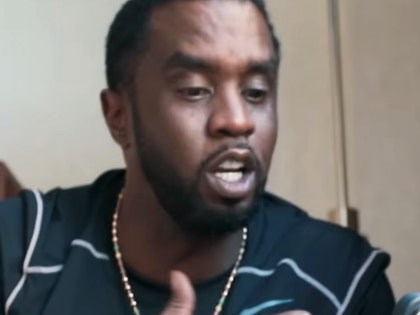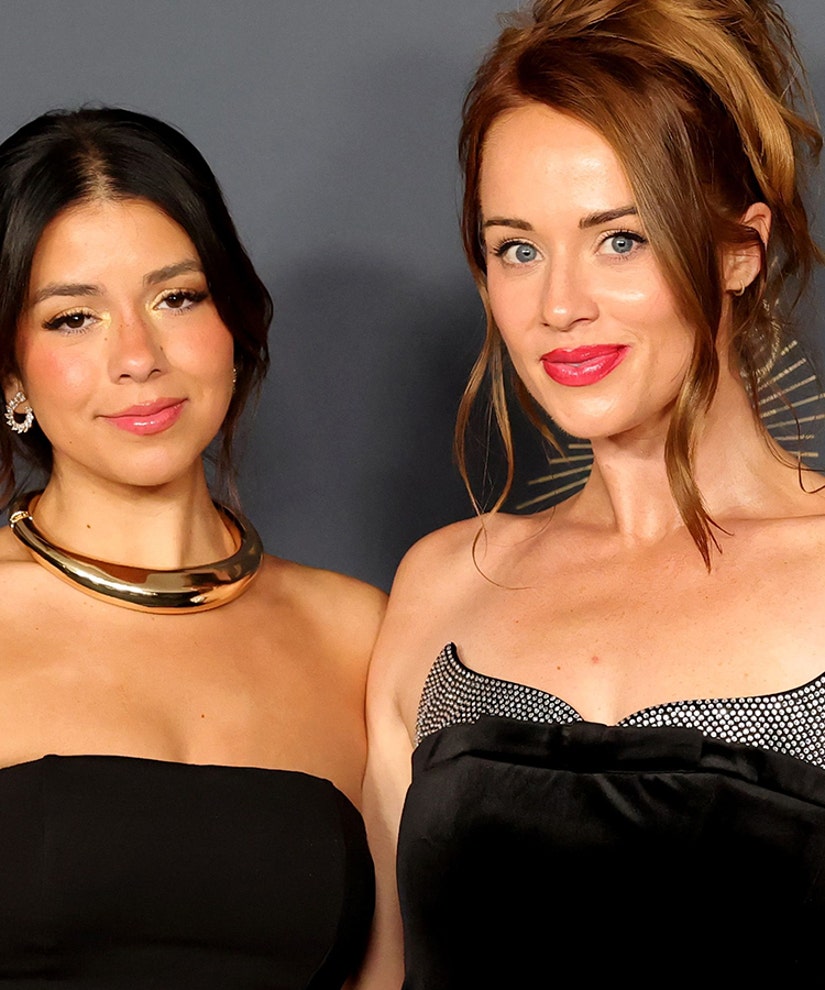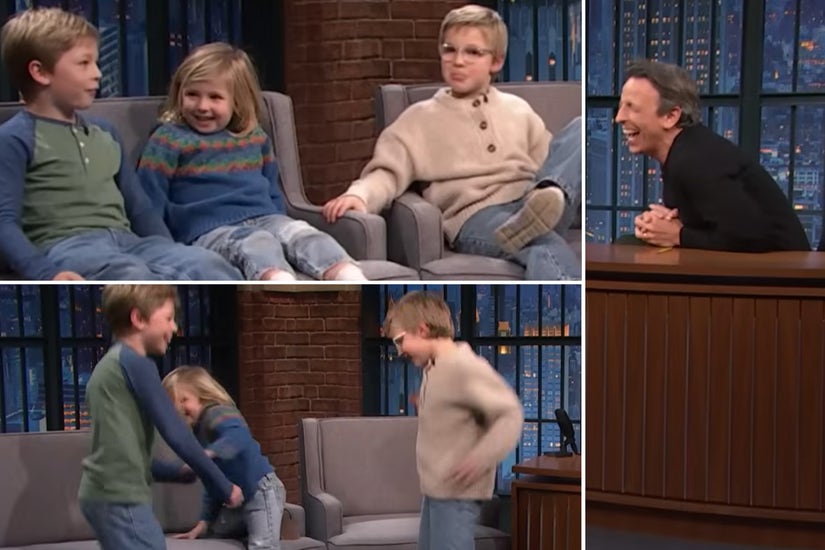Porsha Williams and W. Kamau Bell talk why police reform is so important, what needs to happen and how to keep the momentum going once life returns to "normal" as pandemic shutdowns ease.
It's a monumental conflux of extraordinary events with the United States still in the grips of the COVID-19 pandemic, officially in another recession and taking on systemic racism with global protests in the wake of George Floyd's public murder while in Minneapolis police custody.
But it's not all just a coincidence of timing. No one would argue that the depths of the current recession are a result of ongoing pandemic preventative measures, but W. Kamau Bell credits those same measures with the incredible social response to Floyd's death, in particular among white people.
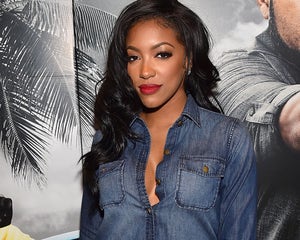 Getty
Getty
Porsha Williams Says Getting Tear-Gassed at Peaceful Protest Gave Her 'Strength' to March Again
View Story"The pandemic means you can't focus on the big movie coming out, you can't focus on the big concert tour that's coming to town, you can't focus on your favorite coffee shop, you can't focus on your after-work social thing," Bell told Andy Cohen on "Watch What Happens Live" Monday night. "All the things you would normally do are pushed aside."
Furthermore, Floyd's death replaced COVID-19 in the news cycle -- or at least vastly overshadowed it -- and many of those same people who've lost most of life's distractions were already in the habit of tuning in regularly for coronavirus and coronavirus response updates.
"There's things to distract you so you don't have to look at it," Bell told Cohen. "Right now, Andy, you had to look at it."
We would add that it's not just the news that's affected, because the absence of movies and concerts and professional sports and theme parks and pretty much all social activities created an opening on social media for idle individuals, including celebrities and athletes with large platforms, to also see and focus on this single catalytic tragedy.
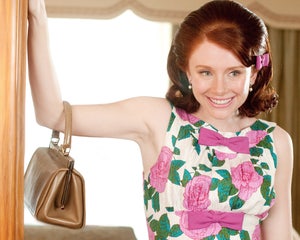 Everett
Everett
Bryce Dallas Howard Says You Shouldn't Watch The Help to Learn About Racism
View Story"Real Housewives of Atlanta" star Porsha Williams chimed in with what she thinks needs to happen in law enforcement. In the wake of the Minneapolis city council's controversial statement that they are looking at dismantling that city's police department entirely, Williams broke down some of the real problems with the current system.
"The way it is set up right now, like say here in Atlanta … a policeman can say, Oh, I actually felt that my life was threatened," Williams explained, as a way to justify almost any instance of police brutality, even to the point of killing a suspect.
"They are going to lean on that fact that they are given the benefit of the doubt being that they're in a job that is high risk," she said. "They can say my life was at risk and this is why I reacted in that way."
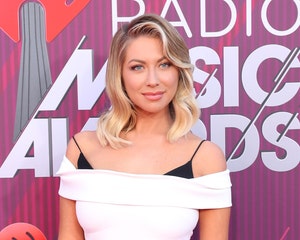 Getty
Getty
Another Painfully Tone-Deaf Stassi Schroeder Podcast Resurfaces: 'Why Is It Always Just About African Americans?'
View StoryShe was quick to also clarify a point that's been missed by many decrying that this issue with systemic racism and police brutality is being argued as exclusively white-on-black violence. It's police-on-black violence that is the genesis of what's become a larger statement on systemic racism. Even systemic racism is not exclusively a white-on-black thing.
"I’m not just talking about white policemen," Williams said. "It's also African-American policeman who have taken on this mentality because they feel they're in a fraternity. They have somehow joined the good old boys. It entirely needs to change."
Later in the broadcast, Bell jumped into the talk about police reform arguing that even "these so-called good cops who don’t feel like they can call out the bad cops, they need to be gone, too."
There may be a code of silence, but complicity in not speaking out or calling out things like murder or acts of racism is still a huge problem, and one that can't be ignored if change is to be had. And if we're really going to go there as a nation, it doesn't start and finish with the police, either.
"This is about schools, this is about mass incarceration, this is about the fact that black neighborhoods don’t have the same level of garbage pickup as white neighborhoods, it’s about all across the board," Bell said.
So his question is if Americans of all races "have the appetite" for that level of commitment, taking on that level of change ... and even if they think they do now, will they still when "TENET" is coming to theaters, their favorite bands are hitting the road and all those other things that have kept them from really digging into these issues before now are back.
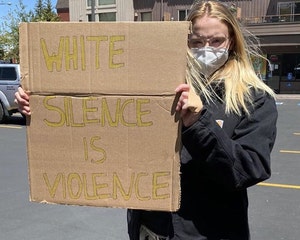 Instagram
Instagram
Sophie Turner Hits Back at Critic Questioning Why She Attended Black Lives Matter Protest
View StoryWilliams also shared her earliest experience with racism as part of both guests' argument that it's important that white people have these conversations with black people, or at least seek out their stories online to truly try and understand even the slightest glimpse of what their experience is like in this country.
For Williams, as the granddaughter of prominent civil rights leader Hosea Williams, she had a vague understanding of the importance of his work. But it was when she joined him on a peaceful protest at six years old that she saw the ugliness of what he was fighting against.
"I was excited to go, as a little kid, you finally get to go to work with your granddad, you hear he's doing all this stuff, and we get out there and I'm excited, again, innocent," she said.
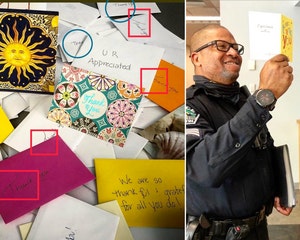
Austin Police Ridiculed Over 'Fake' Thank You Cards Amid Brutal Shut Down of Protesters
View StoryBut at this particular event, she said, they came upon the Ku Klux Klang, who'd decided to protest their protest. Only the KKK clearly had violence in mind. According to Williams, they were protesting in a notoriously racist community, one that drove out any black families that try to live there.
At six years old, this would have placed these happenings around 1988, which just goes to show how little has changed even since the civil rights movements of the 1960s.
"They threw rocks at us -- I actually got hit with one -- and they chased us all the way back to the buses," Williams recalled. "They chased us back to the buses and called us the n-word and any other thing you can imagine the KKK would be calling us."
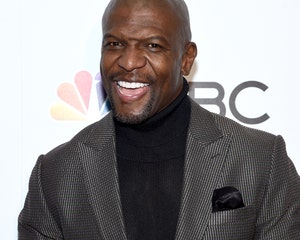 Getty
Getty
Terry Crews Responds to Backlash Over His 'Black Supremacy' Tweets
View StoryShe said that in hindsight the whole experience, which was terrifying and confusing at the time, is empowering. And it is that sense of empowerment that gives her perhaps more hope in the immediate future than even what Bell has.
"I know when the media stops covering it, it kinda stops and dies down," she said of the current protests. Certainly recent evidence (think Occupy Wall Street) bears that out. "But it’s not gonna stop this time."
Bell would argue that if we as a nation choose not to follow through on the current protests with tangible change and action, then this will be the final nail in the coffin of America as the world's superpower, the greatest nation on the planet.
"That myth is about to end the same way it ended with Alexander the Great, the same way it ended with Rome, the same way it ended with the Soviet Union as a powerhouse," he argued. "It's about to end. And we’re going to look up and go, oh, it's not us anymore?"
Got a story or tip for us? Email TooFab editors at tips@toofab.com.

